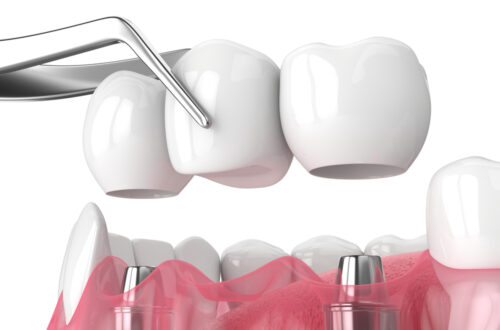
Quality Control in Teeth Whitening Manufacturing: Ensuring Safety and Efficacy
Teeth whitening has become one of the most popular cosmetic dental procedures, with millions seeking brighter smiles through a variety of products available on the market. As demand for these products continues to grow, manufacturers are under pressure not only to innovate but also to ensure the safety and efficacy of their offerings. Quality control is a critical component in the manufacturing of teeth whitening products, playing a crucial role in maintaining high standards and protecting consumer health. This article explores the key aspects of quality control in teeth whitening manufacturing, emphasizing the importance of robust procedures for ensuring product safety and effectiveness while also navigating the marketing of dental products.
The Importance of Quality Control in Teeth Whitening Products
Quality control in the manufacturing of teeth whitening products is paramount due to the direct impact these products have on oral health. Poorly manufactured products can lead to a range of adverse effects, including gum irritation, enamel damage, and increased tooth sensitivity. Therefore, stringent quality control measures are essential to ensure that products not only deliver on their promises of a brighter smile but do so safely.
Quality control processes in the teeth whitening industry involve rigorous testing at multiple stages of production. This includes the evaluation of raw materials, monitoring of the manufacturing process, and thorough testing of the final product. Each step is designed to identify potential issues early, thereby preventing substandard products from reaching the market.
Raw Material Quality and Supplier Verification
The quality of teeth whitening products starts with the raw materials. Key ingredients such as hydrogen peroxide, carbamide peroxide, and various stabilizers must meet specific quality standards. Manufacturers must source these materials from reputable suppliers and perform thorough checks on their purity and potency.
Supplier verification is a crucial aspect of this process. Manufacturers need to establish strong relationships with their suppliers and regularly audit them to ensure compliance with regulatory standards. By verifying the quality of raw materials at the source, manufacturers can significantly reduce the risk of defects later in the production process.
In-Process Quality Control: Monitoring the Manufacturing Process
Once the raw materials are verified, the focus shifts to the manufacturing process itself. In-process quality control involves continuous monitoring of the production environment, equipment, and techniques used to formulate the teeth whitening products. Factors such as temperature, mixing time, and pH levels are closely monitored to ensure consistency and stability of the final product.
Standard operating procedures (SOPs) are essential in maintaining quality during production. These SOPs outline every step of the manufacturing process, from ingredient mixing to packaging, ensuring that every batch of product is produced under controlled conditions. Any deviation from these procedures can lead to variations in product quality, making SOPs a cornerstone of in-process quality control.
Final Product Testing: Ensuring Safety and Efficacy
The final stage of quality control involves testing the finished product to ensure it meets the required safety and efficacy standards. This phase includes both chemical and physical tests to confirm that the product’s active ingredients are present in the correct concentrations and that the product is free from contaminants.
Microbial testing is also critical, as it ensures that teeth whitening products are free from harmful bacteria or fungi that could pose a risk to users. Additionally, stability testing is conducted to determine the product’s shelf life and how it performs under various storage conditions.
Efficacy testing is another important component of final product evaluation. This testing assesses whether the product effectively whitens teeth as advertised, providing the desired results without causing harm. By rigorously testing the finished product, manufacturers can ensure that they deliver safe, effective, and reliable teeth whitening solutions to consumers.
Regulatory Compliance and Documentation
Regulatory compliance is a fundamental aspect of manufacturing teeth whitening products. Different regions have varying regulations regarding the ingredients and concentrations allowed in dental products, as well as labeling requirements and claims that can be made in marketing. Manufacturers must ensure that their products comply with all relevant regulations, which often involves extensive documentation and record-keeping.
Proper documentation not only demonstrates compliance but also serves as a valuable tool in traceability. In the event of a quality issue or product recall, detailed records allow manufacturers to quickly identify and address the root cause, minimizing risk to consumers and the company’s reputation.
The Role of Quality Control in Marketing Dental Products
Effective quality control not only safeguards the end user but also plays a pivotal role in the marketing of dental products. In a competitive market, where consumers are increasingly knowledgeable and discerning, the assurance of quality can be a significant differentiator. Marketing dental products with a strong emphasis on safety, efficacy, and regulatory compliance builds consumer trust and brand loyalty.
Manufacturers can leverage their commitment to quality in their marketing strategies, highlighting certifications, quality seals, and compliance with international standards. This transparency can resonate with consumers who are looking for reliable and safe options for teeth whitening, giving companies a competitive edge in the market.
Quality control is the backbone of teeth whitening product manufacturing, ensuring that every product that reaches the consumer is safe, effective, and reliable. By meticulously managing each stage of the manufacturing process—from raw material selection to final product testing—manufacturers can maintain high standards and protect consumer health. Moreover, a strong commitment to quality not only enhances product safety but also strengthens marketing efforts, building trust and credibility in a competitive market. As the demand for teeth whitening continues to grow, robust quality control practices will remain essential for the success of manufacturers and the safety of consumers alike.



